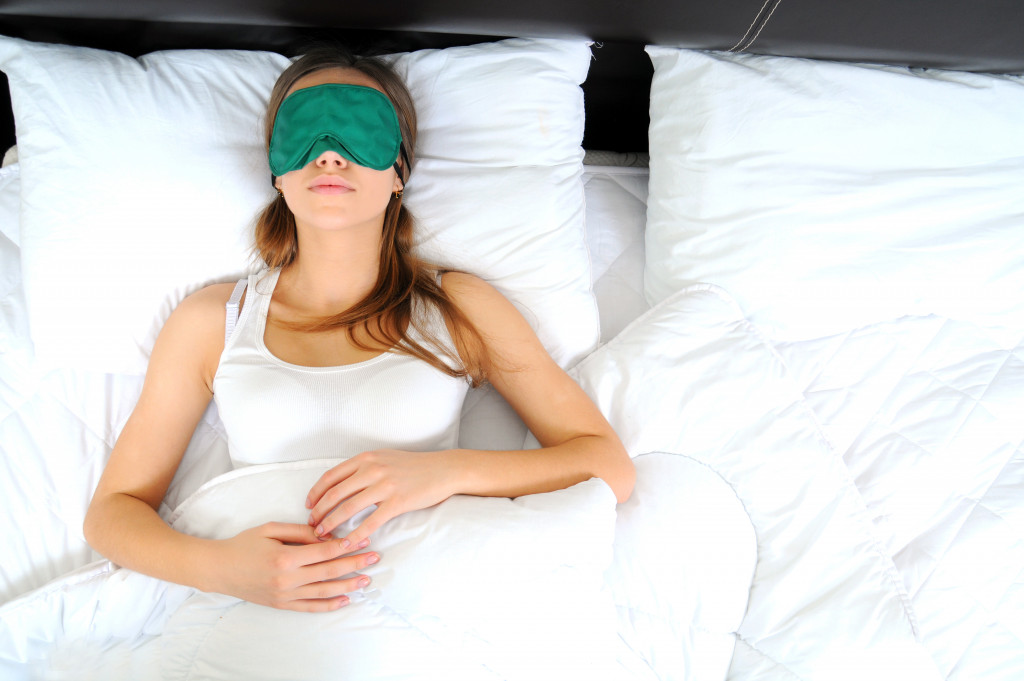Disclaimer: This website provides health information for educational purposes only and is not a substitute for professional medical advice, diagnosis, or treatment. Always seek the guidance of a qualified healthcare provider with any questions you may have.
- Understand your circadian rhythm to regulate sleep patterns and body clock better.
- Limit caffeine and alcohol intake to avoid disrupting the sleep cycle.
- Make tweaks in your bedroom environment, like adjusting temperature, minimizing light and noise, and investing in comfort items for sleeping.
- Try natural remedies such as aromatherapy and relaxation techniques to promote relaxation.
- Maintain a consistent schedule for sleeping, even on weekends, and limit daytime naps.
Do you often struggle to fall asleep at night and wake up feeling tired in the morning? If so, you may be experiencing issues with your sleep schedule and body clock. Your circadian rhythm, also known as your body clock, is responsible for regulating your sleep-wake cycle, and disruptions to this cycle can lead to sleep disturbances and fatigue. However, there are steps you can take to help reset your sleep schedule and get back on track. This article will discuss five tips to help fix your sleep schedule and body clock.
1. Understand Your Circadian Rhythm
Your circadian rhythm is a natural, 24-hour cycle that regulates many physiological processes in your body, including your sleep-wake cycle. It is influenced by factors such as light exposure, activity level, and temperature. Understanding your circadian rhythm is the first step to fixing your sleep schedule and body clock.
Try tracking your sleep patterns and daily activities for a week or two to understand your circadian rhythm better. Pay attention to when you feel the most alert and awake and when you feel the most tired. This can help you identify any patterns in your sleep-wake cycle and determine when you should aim to go to bed and wake up each day.
Additionally, try to expose yourself to bright light in the morning and avoid bright light in the evening. This can help regulate your circadian rhythm and promote healthy sleep patterns. Consider going for a walk outside in the morning or investing in a light therapy box to help regulate your exposure to light.
2. Limit Exposure to Caffeine and Alcohol

Caffeine and alcohol are both substances that can disrupt your sleep and negatively affect your body clock. Caffeine is a stimulant that can make it harder to fall asleep and stay asleep, while alcohol can disrupt your sleep by altering your sleep cycle and increasing the likelihood of waking up during the night.
To help fix your sleep schedule and body clock, consider limiting your intake of caffeine and alcohol. Avoid caffeine in the late afternoon and evening, as it can take several hours for the effects to wear off. Additionally, try to avoid consuming alcohol within a few hours of bedtime to allow your body time to process the substance before you sleep.
3. Make Tweaks in Your Bedroom Environment
Your bedroom environment can also significantly affect your sleep quality and body clock. Making a few tweaks to your bedroom environment can help promote healthy sleep patterns and reset your body clock.
Here are some changes you can make:
Adjust the Temperature
Adjusting the temperature of your bedroom to a comfortable level (typically between 60-67 degrees Fahrenheit) can help promote deep sleep and reset your body clock. Consider using an air conditioner, fan, or heater to adjust the temperature in your bedroom according to your preferences.
Minimize Light and Noise

Having a dark and quiet environment is key for promoting healthy sleep patterns. If necessary, use blackout curtains or an eye mask to block out light from windows, and consider using earplugs or white noise to block out any external noise that could disrupt your sleep.
Invest in Comfort
Investing in comfort-promoting items for your bedroom can help you sleep better and reset your body clock. Investing in a quality mattress from the best and most trusted mattress store can be beneficial as it helps support your body’s contours while sleeping. As a result, this promotes deeper and more restful sleep. Furthermore, investing in comfortable bedding, such as a supportive pillow and soft sheets, can also help improve your sleep quality.
Set a Sleep Routine
Creating a consistent sleep routine helps signal your body clock when it’s time to sleep and wake up. Try reading or listening to calming music before bedtime to help you relax, and make sure to stick with the same wake-up time every morning. This will help instill healthy habits and reset your internal clock for improved sleep quality.
4. Try Natural Remedies To Help Promote Relaxation
Natural remedies can also help promote relaxation and improve your sleep quality. For example, aromatherapy can help promote relaxation and relieve stress. Essential oils such as lavender, chamomile, and jasmine can be added to a diffuser or sprayed onto your pillow to help you relax before bedtime.
Additionally, relaxation techniques such as deep breathing, meditation, and yoga can help calm your mind and body and promote healthy sleep patterns. Consider incorporating these techniques into your bedtime routine to help you wind down and prepare for sleep.
5. Maintain A Consistent Schedule Even On Weekends
Maintaining a consistent sleep schedule is crucial to regulating your body clock and fixing your sleep schedule. Try to go to bed and wake up at the same time every day, including on weekends. This can help your body adjust to a regular pattern and improve sleep quality.
Limiting daytime naps, if possible, is also essential, as long or frequent naps can disrupt your sleep-wake cycle. If you need to take a nap during the day, aim for no more than 30 minutes and avoid taking them late in the day, so they don’t interfere with your nighttime sleep.
Final Words
Following these five tips can help reset your sleep schedule and body clock and get back on track. Remember to make lifestyle changes such as understanding your circadian rhythm, limiting exposure to caffeine and alcohol, adjusting your bedroom environment, trying natural remedies to promote relaxation, and maintaining a consistent sleep schedule. With the right tools and strategies, you can improve your sleep quality and get back to feeling rested and refreshed.




